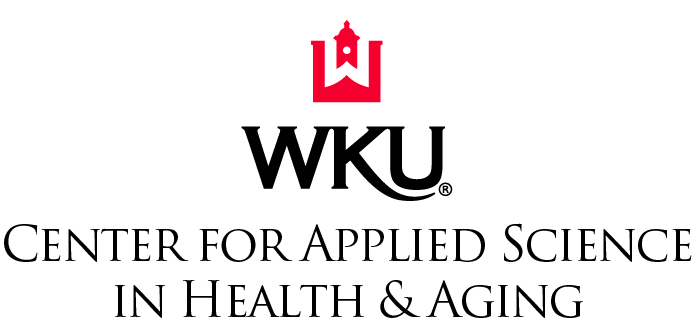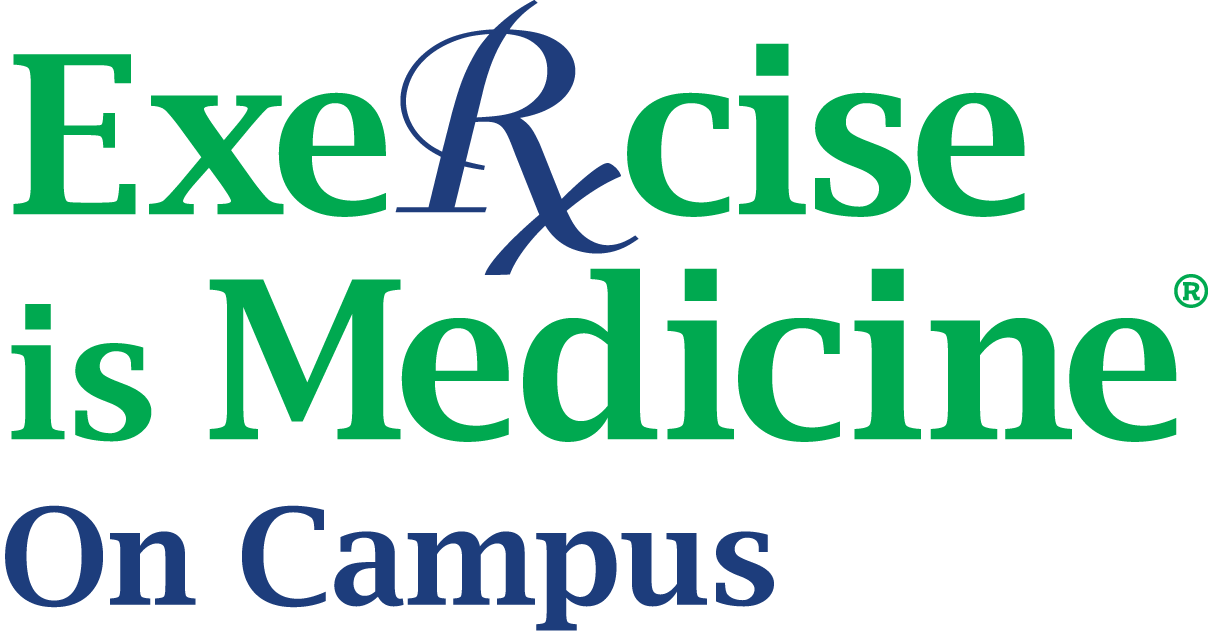Lab Spaces and Ongoing Research

Dr. Jason Crandall created Bingocize®, a socially engaging group-based program that combines exercise, health education, and the widely popular game of bingo. Our research team successfully tested Bingocize® and found over 90% of older adults were retained over the course of the 10-week program PLUS they significantly improved physical, social, and mental health. Bingocize® is delivered live by a trained lay leader either face-to-face or using the Bingocize® web-based app. With critical endorsements from the United States Administration for Community Living and Department of Agriculture, we offer Bingocize® licenses, online training, program materials and equipment, and merchandise to nursing homes, assisted living, senior centers, and hospital trauma centers across the US and the world. In fact, the program is now in communities in over 40 different states!
- 1-year project funded by the Kentucky Department of Public Health to create and test a Bingocize COVID-19 vaccination education workshop
- 3- year NIH R15 clinical trial to investigate the physical and cognitive effects of Bingocize® Online implementation
- 3-year project funded by the Tennessee Department of Public Health and the US Center for Medicare and Medicaid Services to implement Bingocize® in 100 Tennessee nursing homes. So far over 3000 residents have participated.
Faculty contact information:
Dr. Jason Crandall
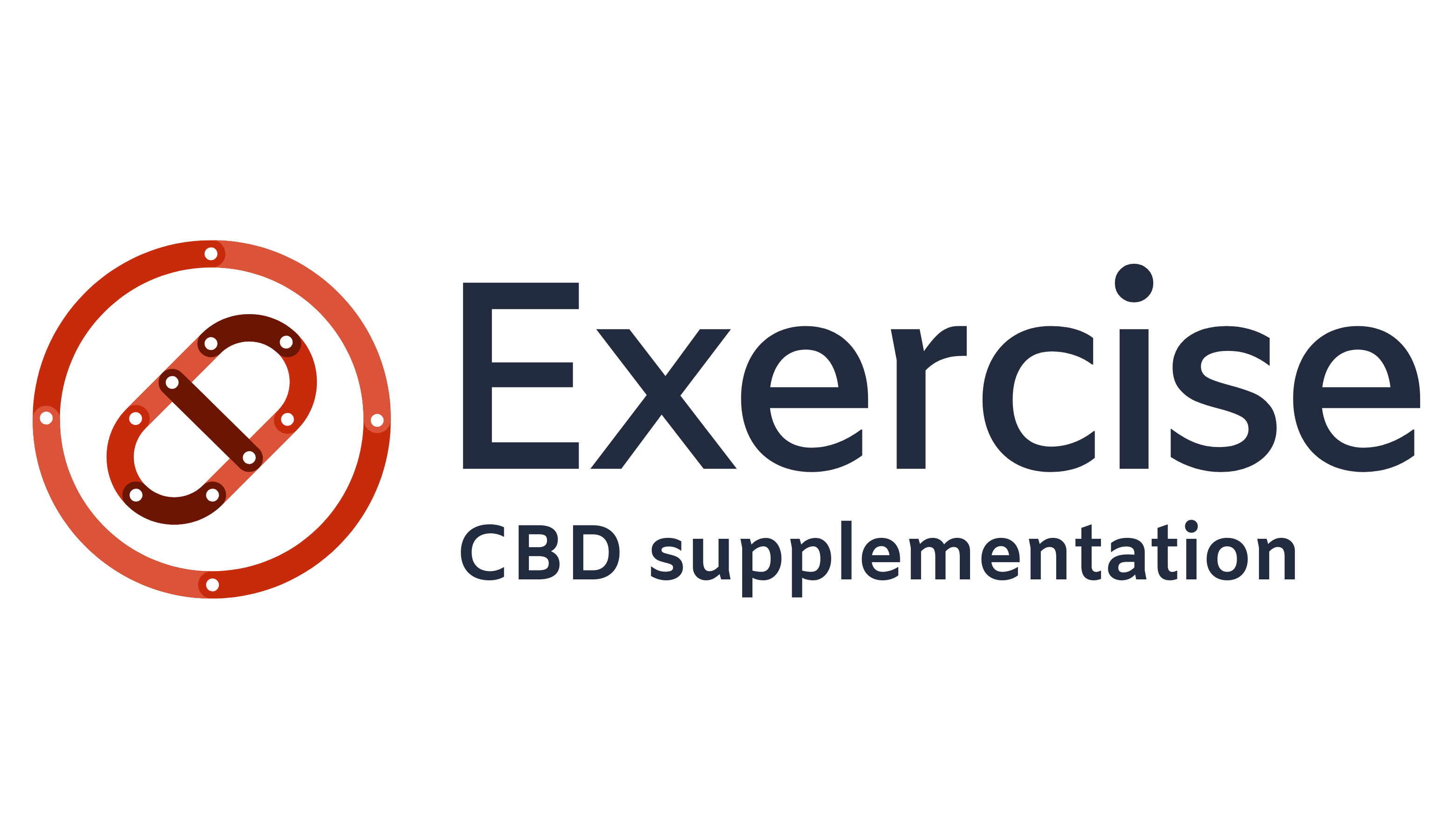 Dr. Whitley Stone is curious about the impact CBD (cannabidiol) oil can make on the exercise response.
Dr. Whitley Stone is curious about the impact CBD (cannabidiol) oil can make on the exercise response.
CBD supplements have been shown to make a positive impact on general inflammation and discomfort. Specifically, CBD has been shown to reduce inflammation post exercise in animal models; however, the literature is still lacking in its relevance in human subjects. CBD might make a more effective alternative to over-the-counter non-steroid anti-inflammatory drugs (NSAIDs); NSAIDs have shown to interfere with the muscle growth agents activated after exercise, where CBD does not. Additionally, exercise pain/discomfort is negatively associated with pleasure and could be one reason why it has been shown to be barrier to physical activity. If CBD supplementation can reduce the discomfort experienced by individuals, then more may be likely to engage in the highly effective ERT modality.
Faculty contact information:
Dr. Whitley Stone; whitley.stone@wku.edu
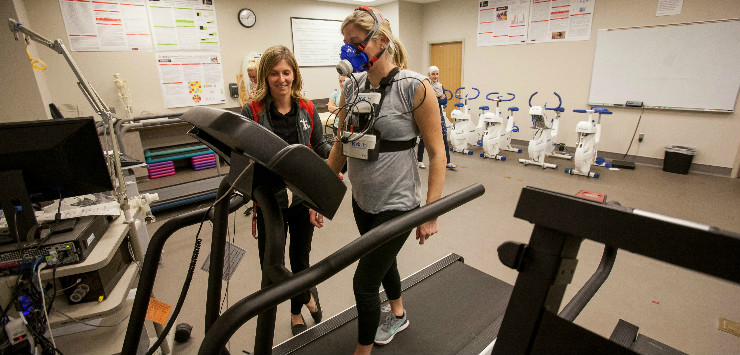
The goal of Dr. Rachel Tinius’ research is focused on improving the health of pregnant women and their babies, both nationally and in South Central Kentucky. Physical activity during pregnancy improves many maternal and infant health outcomes; however, most pregnant women still do not comply with physical activity recommendations. One of Dr. Tinius’ externally funded KBRIN-INBRE research projects will help identify several potential pathways (i.e. metabolic and inflammatory pathways) that can be targeted with future exercise interventions, as well as implement a sustainable intervention designed to increase physical activity levels through education and community resources.
Faculty contact information:
Dr. Rachel Tinius
-
Cosmed K5 portable metabolic device
-
Velotron cycle ergometer
-
Bod Pod
-
Tanita Bioelectrical Impedance Analyzer (BIA)
-
Quinton Q 55 treadmill and exercise ECG
-
Parvo Medics TrueOne 2400 metabolic system
-
Vacumed Mini-Vists CPX metabolic analysis system
-
Biochemistry lab with accompanying Millipore Direct Q 3 water purification system
-
Monark cycle ergometers
-
Resting Metabolic Hood
-
Treadmills
-
Two AMTI force plates
-
Tendo bar velocity
-
Noraxon electromyography (EMG)
-
Multiple stations and set ups for weight lifting evaluation
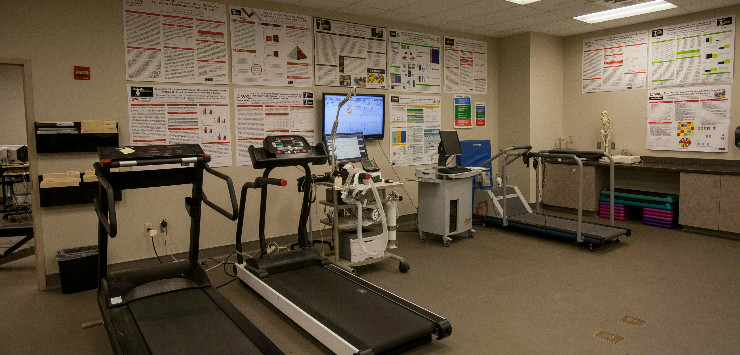
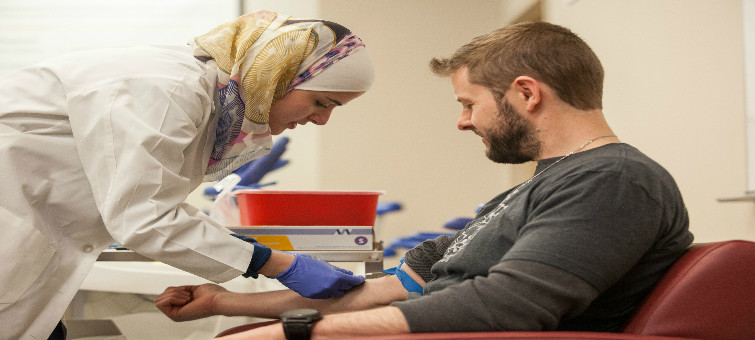
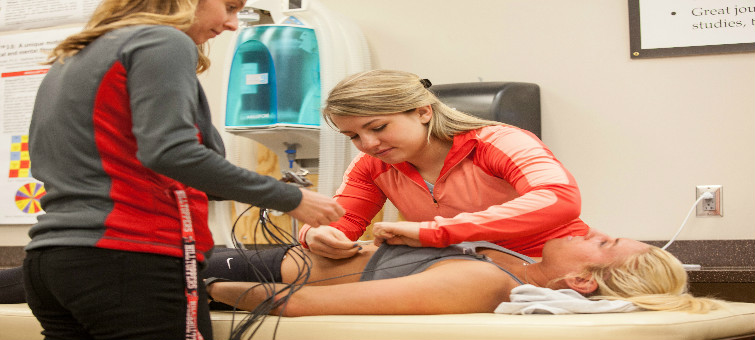
Exercise Science Laboratories
The Western Kentucky University Exercise Physiology Lab provides a platform for research
and student education. The purpose of the Exercise Physiology Lab is to engage students
and better prepare WKU Exercise Science and Kinesiology graduates for post-graduation
careers through involvement in teaching, research, and service to the Bowling Green and WKU
campus communities.
Students in the Exercise Science and Kinesiology Programs experience hands-on training as part of their academic laboratory exercises.
They have the opportunity to become proficient in a variety of exercise physiology
testing procedures and other physiological assessments: blood pressure, body composition,
cardiovascular function (ECG administration and interpretation), anthropometric measurements,
metabolic rate, strength/power/flexibility assessment, cardiorespiratory fitness,
etc. Additionally, students are encouraged to volunteer and get involved in ongoing
research studies or work on their own faculty-mentored research projects. Research
in the Exercise Physiology Lab positively impacts the community, as many projects
often involve fitness training and wellness promotion for the South Central Kentucky
region and the WKU community.
The Exercise Physiology Lab is ~2,000 sq. ft of modern laboratory space, housed in
the recently renovated $37.5 million dollar facility, Houchens L. T. Smith Stadium
East Room 1052. This space is equipped with exercise physiology testing equipment
and tools to perform a wide variety of clinical procedures.
Some of the links on this page may require additional software to view.




